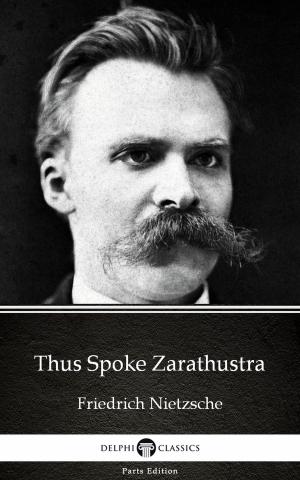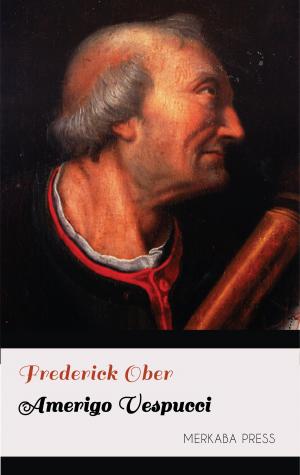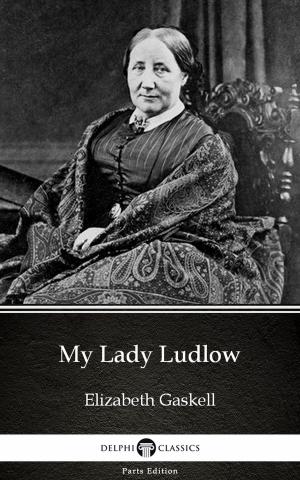| Author: | Adolphus Ward | ISBN: | 6610000023820 |
| Publisher: | PublishDrive | Publication: | July 27, 2017 |
| Imprint: | Merkaba Press | Language: | English |
| Author: | Adolphus Ward |
| ISBN: | 6610000023820 |
| Publisher: | PublishDrive |
| Publication: | July 27, 2017 |
| Imprint: | Merkaba Press |
| Language: | English |
Charles Dickens, the eldest son, and the second of the eight children, of John and Elizabeth Dickens, was born at Landport, a suburb of Portsea, on Friday, February 7, 1812. His baptismal names were Charles John Huffham. His father, at that time a clerk in the Navy Pay Office, and employed in the Portsmouth Dock-yard, was recalled to London when his eldest son was only two years of age; and two years afterwards was transferred to Chatham, where he resided with his family from 1816 to 1821. Thus Chatham, and the more venerable city of Rochester adjoining, with their neighbourhood of chalk hills and deep green lanes and woodland and marshes, became, in the words of Dickens’s biographer, the birthplace of his fancy. He looked upon himself as, to all intents and purposes, a Kentish man born and bred, and his heart was always in this particular corner of the incomparable county. Again and again, after Mr. Alfred Jingle’s spasmodic eloquence had, in the very first number of Pickwick, epitomised the antiquities and comforts of Rochester, already the scene of one of the Sketches, Dickens returned to the local associations of his early childhood. It was at Chatham that poor little David Copperfield, on his solitary tramp to Dover, slept his Sunday night’s sleep “near a cannon, happy in the society of the sentry’s footsteps;” and in many a Christmas narrative or uncommercial etching the familiar features of town and country, of road and river, were reproduced, before in Great Expectations they suggested some of the most picturesque effects of his later art, and before in his last unfinished romance his faithful fancy once more haunted the well-known precincts. During the last thirteen years of his life he was again an inhabitant of the loved neighbourhood where, with the companions of his mirthful idleness, he had so often made holiday; where, when hope was young, he had spent his honey-moon; and whither, after his last restless wanderings, he was to return, to seek such repose as he would allow himself, and to die. But, of course, the daily life of the “very queer small boy” of that early time is only quite incidentally to be associated with the grand gentleman’s house on Gad’s Hill, where his father, little thinking that his son was to act over again the story of Warren Hastings and Daylesford, had told him he might some day come to live, if he were to be very persevering, and to work hard. The family abode was in Ordnance (not St. Mary’s) Place, at Chatham, amidst surroundings classified in Mr. Pickwick’s notes as “appearing to be soldiers, sailors, Jews, chalk, shrimps, offices, and dock-yard men.” But though the half-mean, half-picturesque aspect of the Chatham streets may already at an early age have had its fascination for Dickens, yet his childish fancy was fed as fully as were his powers of observation. Having learned reading from his mother, he was sent with his elder sister, Fanny, to a day-school kept in Gibraltar Place, New Road, by Mr. William Giles, the eldest son and namesake of a worthy Baptist minister, whose family had formed an intimate acquaintance with their neighbours in Ordnance Row. The younger Giles children were pupils at the school of their elder brother with Charles and Fanny Dickens, and thus naturally their constant playmates. In later life Dickens preserved a grateful remembrance, at times refreshed by pleasant communications between the families, of the training he had received from Mr. William Giles, an intelligent as well as generous man, who, recognising his pupil’s abilities, seems to have resolved that they should not lie fallow for want of early cultivation. Nor does there appear to be the slightest reason for supposing that this period of his life was anything but happy. For his sister Fanny he always preserved a tender regard; and a touching little paper, written by him after her death in womanhood, relates how the two children used to watch the stars together, and make friends with one in particular, as belonging to themselves. But obviously he did not lack playmates of his own sex; and it was no doubt chiefly because his tastes made him disinclined to take much part in the rougher sports of his school-fellows, that he found plenty of time for amusing himself in his own way. And thus it came to pass that already as a child he followed his own likings in the two directions from which they were never very materially to swerve. He once said of himself that he had been “a writer when a mere baby, an actor always.”
Charles Dickens, the eldest son, and the second of the eight children, of John and Elizabeth Dickens, was born at Landport, a suburb of Portsea, on Friday, February 7, 1812. His baptismal names were Charles John Huffham. His father, at that time a clerk in the Navy Pay Office, and employed in the Portsmouth Dock-yard, was recalled to London when his eldest son was only two years of age; and two years afterwards was transferred to Chatham, where he resided with his family from 1816 to 1821. Thus Chatham, and the more venerable city of Rochester adjoining, with their neighbourhood of chalk hills and deep green lanes and woodland and marshes, became, in the words of Dickens’s biographer, the birthplace of his fancy. He looked upon himself as, to all intents and purposes, a Kentish man born and bred, and his heart was always in this particular corner of the incomparable county. Again and again, after Mr. Alfred Jingle’s spasmodic eloquence had, in the very first number of Pickwick, epitomised the antiquities and comforts of Rochester, already the scene of one of the Sketches, Dickens returned to the local associations of his early childhood. It was at Chatham that poor little David Copperfield, on his solitary tramp to Dover, slept his Sunday night’s sleep “near a cannon, happy in the society of the sentry’s footsteps;” and in many a Christmas narrative or uncommercial etching the familiar features of town and country, of road and river, were reproduced, before in Great Expectations they suggested some of the most picturesque effects of his later art, and before in his last unfinished romance his faithful fancy once more haunted the well-known precincts. During the last thirteen years of his life he was again an inhabitant of the loved neighbourhood where, with the companions of his mirthful idleness, he had so often made holiday; where, when hope was young, he had spent his honey-moon; and whither, after his last restless wanderings, he was to return, to seek such repose as he would allow himself, and to die. But, of course, the daily life of the “very queer small boy” of that early time is only quite incidentally to be associated with the grand gentleman’s house on Gad’s Hill, where his father, little thinking that his son was to act over again the story of Warren Hastings and Daylesford, had told him he might some day come to live, if he were to be very persevering, and to work hard. The family abode was in Ordnance (not St. Mary’s) Place, at Chatham, amidst surroundings classified in Mr. Pickwick’s notes as “appearing to be soldiers, sailors, Jews, chalk, shrimps, offices, and dock-yard men.” But though the half-mean, half-picturesque aspect of the Chatham streets may already at an early age have had its fascination for Dickens, yet his childish fancy was fed as fully as were his powers of observation. Having learned reading from his mother, he was sent with his elder sister, Fanny, to a day-school kept in Gibraltar Place, New Road, by Mr. William Giles, the eldest son and namesake of a worthy Baptist minister, whose family had formed an intimate acquaintance with their neighbours in Ordnance Row. The younger Giles children were pupils at the school of their elder brother with Charles and Fanny Dickens, and thus naturally their constant playmates. In later life Dickens preserved a grateful remembrance, at times refreshed by pleasant communications between the families, of the training he had received from Mr. William Giles, an intelligent as well as generous man, who, recognising his pupil’s abilities, seems to have resolved that they should not lie fallow for want of early cultivation. Nor does there appear to be the slightest reason for supposing that this period of his life was anything but happy. For his sister Fanny he always preserved a tender regard; and a touching little paper, written by him after her death in womanhood, relates how the two children used to watch the stars together, and make friends with one in particular, as belonging to themselves. But obviously he did not lack playmates of his own sex; and it was no doubt chiefly because his tastes made him disinclined to take much part in the rougher sports of his school-fellows, that he found plenty of time for amusing himself in his own way. And thus it came to pass that already as a child he followed his own likings in the two directions from which they were never very materially to swerve. He once said of himself that he had been “a writer when a mere baby, an actor always.”















